Speakers
📢 Here are the speakers we have for this event. We will also hear from you – the event is all about taking part.
How Can We Understand & Integrate Young Minds into the Modern Workforce?
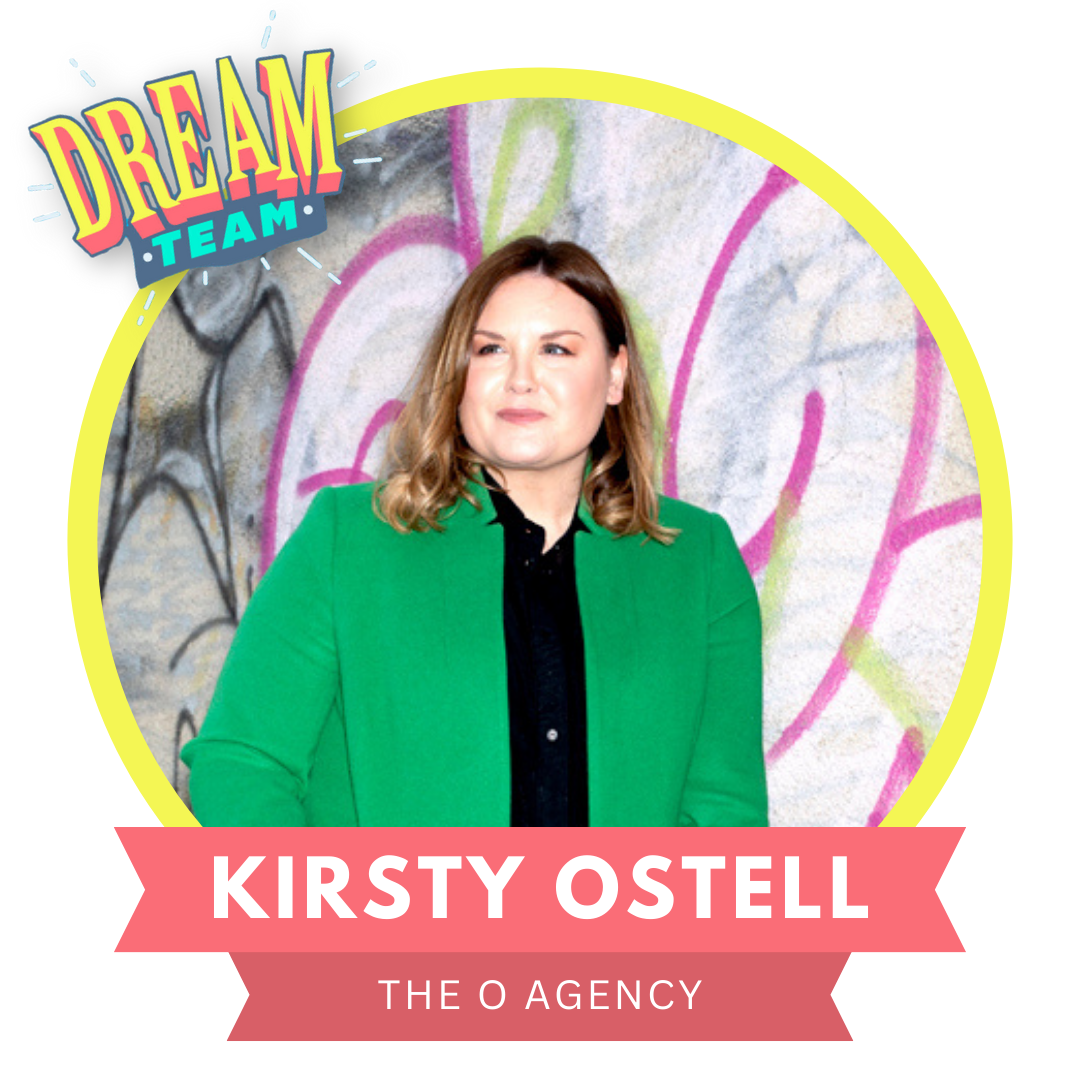
There’s a lot of talk about young people being lazy – their employer expectations are too high, and they don’t want to do ‘real work’ anymore.
But this isn’t a sentiment exclusive to our modern age.
People have been saying this for years – you can track newspaper articles all the way back to 1894 that say so.
“There’s a lot of talk around young people and Gen Z not being hard working anymore,” says Kirsty Ostell, managing director at O.agency. “I think a lot of assumptions get made about them, but I think it’s more a lack of understanding; there needs to be a broader conversation.”
At O.agency, Kirsty has gone out of her way to make sure they really understand how this current generation thinks in order to make their business operate smoother.
They’ve created internship programmes in order to give Gen Z a fighting chance, even launching a summer school initiative this year.
“We work with universities, colleges and schools to try to educate and bring people on that journey, giving them more of an understanding of what a marketing career actually is,” she explains. “The idea is that they can help shape our understanding of what the next generation wants from the world of work, as well as giving them the opportunity to enter it in the first place.”
For example: “When we sat down with university students, we found that, whilst job titles are important, the most important thing was feeling that they could own and run with something.”
At Dream Team, Kirsty will delve into how O.agency is endeavouring to understand more of the current generation’s mindset, and how we can begin to have broader, more meaningful conversations around it.
How to Navigate a Crisis While Running a Business
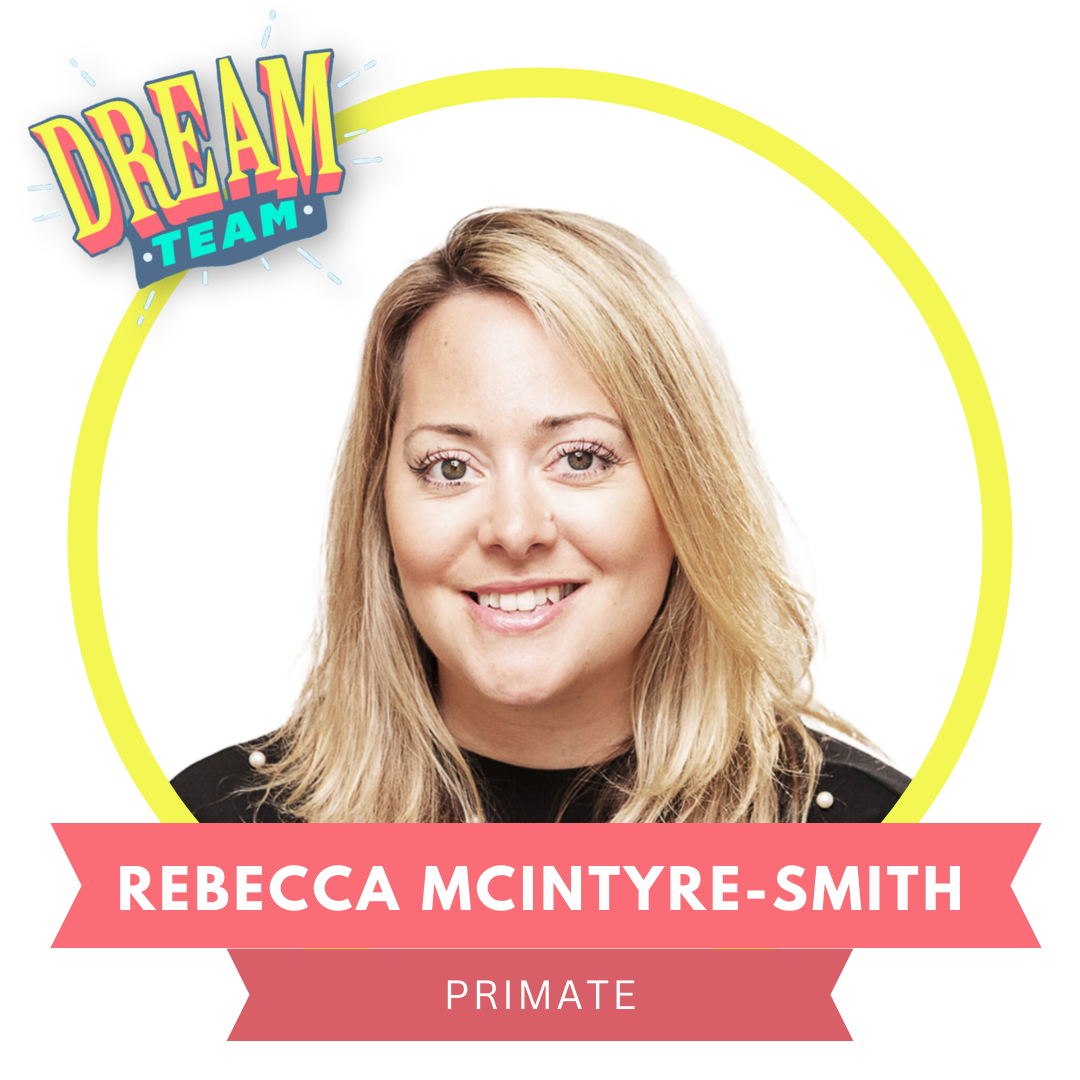
“I told the nurse, ‘I’m actually a project manager, so you can tell me the timeline and all the milestones we’re gonna hit, I’ll put it into my diary, and we’ll just manage it that way. It will be fine!’”
“She just laughed at me and said, ‘You can’t project manage this’.”
In 2018, Rebecca MycIntyre-Smith’s husband was diagnosed with stage three head and neck cancer.
And yet, rather than taking time off from her role at Primate to look after him, she tried to do both.
This ended up being a huge mistake: “When I look back, I think, ‘Why did you not take six weeks off sick, you absolute lunatic?’”
But the tribulations didn’t stop there. Once her husband was cleared of it, Rebecca was unexpectedly diagnosed with cancer. Then, two years later, her husband’s cancer came back.
All the while, Rebecca continued working at Primate – even becoming managing partner in 2019.
Unfortunately, she ended up just getting in the way.
“When I was diagnosed, I was the one being like, ‘I need normalcy. I need routine.’ But I would get chemo every three weeks, and I would feel like death,” Rebecca explains.
“My memory was terrible. So I would jump into meeting and say the wrong thing, because I was stuck two weeks back. Or I would hold onto things and the team would say, ‘We can run them, you can go away’. I was keeping everyone at a really slow pace when actually, the studio could move at its normal pace without me.”
“Eventually, my co-managing partner sat me down and said, ‘Right, we’re going to force you to take time off. It’s not optional. It’s not because we don’t want you, it’s because you have to go and get better’. And I burst into tears.”
If Rebecca has learned anything from all this, it’s this: you have to accept that you can’t take on everything life throws at you all at once.
“By the third time, we knew how this worked. So the day we got the news, I emailed my team to say, ‘I’m taking six weeks off work, I will be in touch’. And then when I came back, we hired a new ops director to help with crisis planning.”
Thankfully, this sh*tstorm came with more than one silver lining. Not only is the company now prepared for anything that falls in its path, but it also encouraged the directors to introduce extra benefits for the team.
Now, everyone has access to eight emergency days a year – usable for whatever they like – to ensure they’re looking after themselves. That way, no-one feels like they need to prioritise work over personal emergencies.
“The team isn’t overworked, everyone’s stable and happy,” Rebecca explains. “All of our learnings have changed the way we approach things like sickness. We’ve got statutory but we also have discretionary; we don’t limit it essentially. We’ve put critical illness, access to counselling, and life insurance in place for the entire team. We just tried to cover everything.”
At Dream Team, Rebecca will take us on her journey of dealing with a crisis whilst running a business. She’ll delve into the impact it had on her team, and the lessons they’ve all learned when it comes to crisis planning.
How to Create a Culture You Can Be Proud of
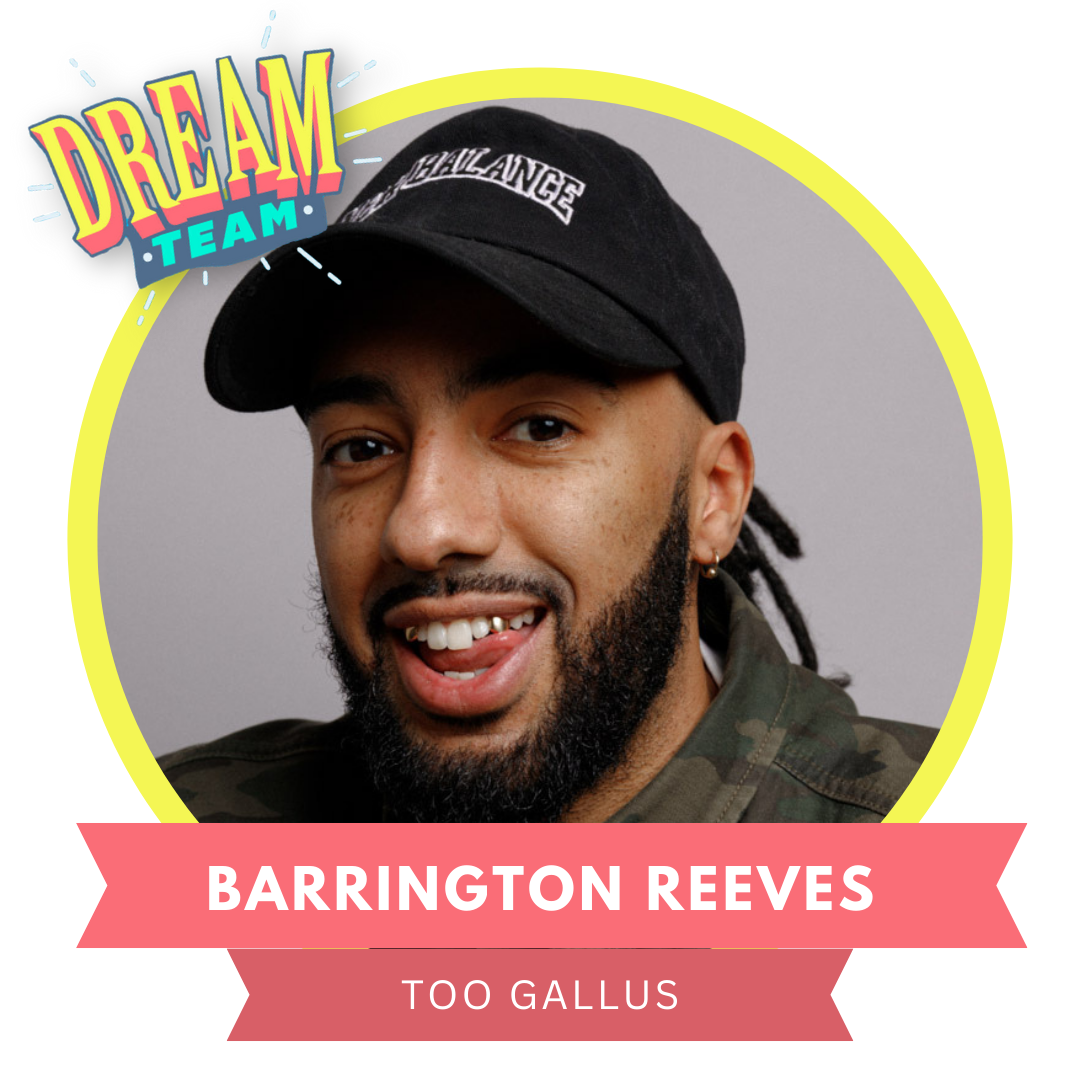
Barrington Reeves was a fresh-faced graduate, eager to kick off his career in digital marketing.
He had just gotten a job at his first ever agency, but quickly came to realise just how terrible their culture was.
“Every Monday morning, you would open your email, and there would be three from HR to tell you who had quit; who’d been fired; who was replacing them and who to talk to,” says Barrington. “And I just remember thinking: this is hell.”
With that experience in mind, Barrington wanted to ensure his agency, Too Gallus, would be the polar-opposite. Leading by example, he empowers his employees with transparent, open communication.
“We’ve always been conscious that the well-being of the staff keeps everything ticking over. Without everybody feeling good and operating optimally, we can’t succeed.”
“I want them to feel involved with the company, that it’s as much their vision as it is mine,” says Barrington. “I’m always making sure we’re working towards a common goal that’s not just, ‘come in and do you work’.”
Part of this comes down to recognising what’s doable and what’s unreasonable from client requests: are you going to be upfront with them, or will you bend over backwards to make sure everything gets done in time?
Barrington and his team at Too Gallus have this down perfectly – having created a working environment where people feel safe and confident to communicate.
“We’ve never done a later than six o’clock close, and we’d never, ever do a weekend. A lot of that is down to client communication, making sure they understand that’s how we treat our team,” he says.
“We’re quite upfront with our clients – we will say if they’re being unreasonable. It’s just having that really clear, open communication with our clients and staff. I don’t think there’s anything my team feels like they couldn’t tell me. We’ve created quite an open working environment that is hopefully quite empowering for them.”
At Dream Team, Barrington will explore how he’s gone about building a workplace culture he’s immensely proud of – and the tools and mindset you need to do the same.
How We’re Using Regenerative Growth Principles To Keep Our Team Happy and Motivated
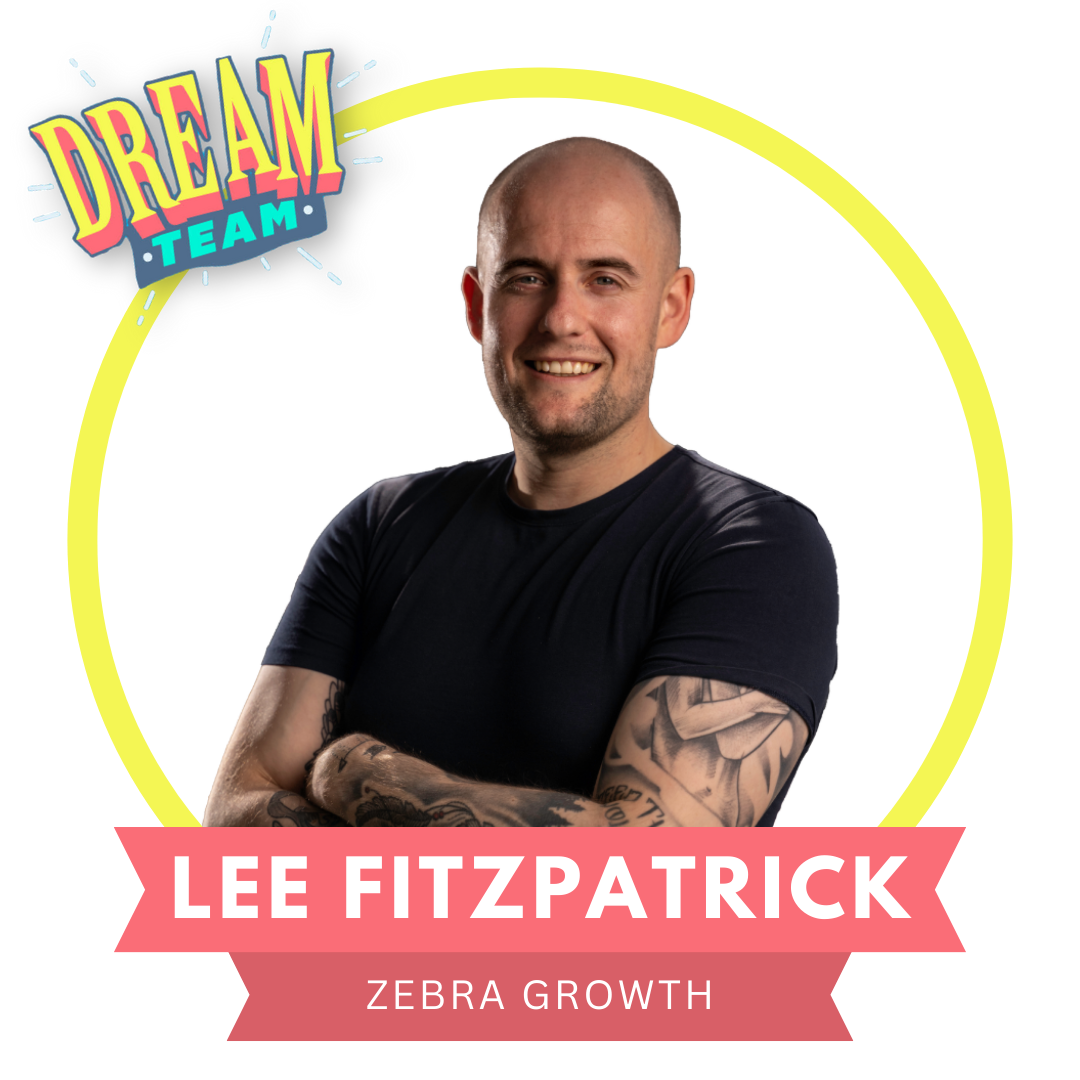
“The approach we adopt to build our culture, and the way we help other businesses grow, actually comes from understanding nature’s principles of growth, regeneration, wellbeing, and systemic health.”
Zebra Growth operates quite differently to most agencies. Rather than chasing profit or bigger headcount – co-founders Lee Fitzpatrick and Moh Al-Haifi take influence from Mother Nature for their decision making.
This concept is called ‘Regenerative growth’ and it follows the idea of creating ways of working that are not just sustainable, but also rejuvenating for the environment and society. Essentially, it goes beyond reducing harm and impact – instead focusing on actively improving and ‘regenerating’.
Lee came across this theory in the early days of his agency.
“Moh and I had been working in marketing for 10 years. We’d had multiple burnouts and we’d always been disconnected to the ‘growth at all costs’ paradigm,” he says. “We looked for something else where we could use our marketing skills to contribute to wider society and a positive environmental impact – but we struggled to do so.”
So they founded their own agency – Zebra Growth – as well as an initiative called ‘The Regenerative Marketing Movement’.
“Within that movement, we’ve got a committee of Guardians that consists of 25 thought leaders from different industries – including regenerative agriculture, leaders of indigenous communities, marketers, and branding specialists – that are co-creating these things called the ‘regenerative marketing principles’,” says Lee.
“The nine principles are all built around how marketing can create conditions that are conducive to life; how it can heal and restore the planet and society, rather than sell more products and destroy. And all of our team are involved in that process.”
Through this, they’ve also developed a ‘regenerative risk register’: “We basically identify all the risks within the business that could create conditions for stress, and we use that risk register as an input for our monthly one to ones.”
A big focus now is how they can move away from traditional ways of working in an agency that interfere with the team’s – and the planet’s – wellbeing.
“To create an agency that is conducive to wellbeing, happiness, and health – what kind of things do we need to unlearn?”
“We do a bi-weekly ‘un-learning’ session where we take a topic that is part of the agency ‘norm’, but goes against those principles. For example, one of our topics was toxic resilience – the idea that you have to keep going, push through, hit that deadline, work work work work.”
“That usually filters down from founders who have built that resilience or over time. But their more junior team members haven’t had the chance to build that up, and that might be completely overwhelming – so therefore not conducive to a happy, healthy environment.”
At Dream Team, Lee will take us through the key principles of regenerative growth and how his agency is applying them to foster a healthy and happy team culture that aligns with the agency’s mission.
A
